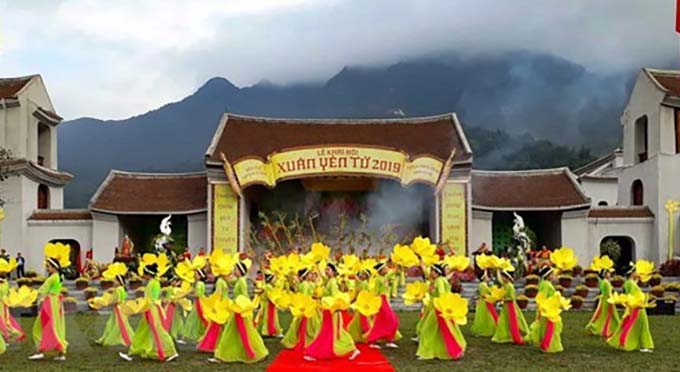Thousands of people have flocked to the northeastern province of Quang Ninh to join in the Yen Tu Spring Festival, which began in Uong Bi city on February 14 or the 10th day of the Lunar New Year.

Apart from art programmes, visitors to the festival can participate in folk games such as cock fighting, tug of war, “con” (cloth ball) throwing and chess, said Le Minh Quang, head of the Division of Culture and Information of Uong Bi city.
In the days ahead of the festival, about 150,000 tourists visited Yen Tu Mount, up 25 percent year-on-year, according to the official.
Yen Tu Mountain is located about 50 kilometres from Ha Long city. The area has awe-inspiring scenery, surrounded by ancient pagodas and hermitages.
Tran Nhan Tong (1258-1308), the third King of the Tran Dynasty (1225-1400), ascended to the throne when he was just 21. He was famed for defeating Mongol invaders twice during his 15-year reign.
The king abdicated when he was 35 and spent the rest of his life on Yen Tu Mountain practicing and propagating Buddhism. He founded the first Vietnamese School of Buddhism called “Thien Tong” or Truc Lam Yen Tu Zen on the 1,068m-high Yen Tu Mountain. The 20,000ha site is considered the capital of Vietnamese Buddhism.
Yen Tu became a major Buddhist Centre and King Tran Nhan Tong became its first leader under the religious name Dieu Ngu Giac Hoang Tran Nhan Tong. He ordered the construction of hundreds of religious buildings on Yen Tu Mountains for teaching and following a religious life.
Besides numerous temples, it also preserves many old religious and cultural documents such as precious prayer-books and monks’ writings.
Yen Tu was officially listed as a special national relic site in September 2012.